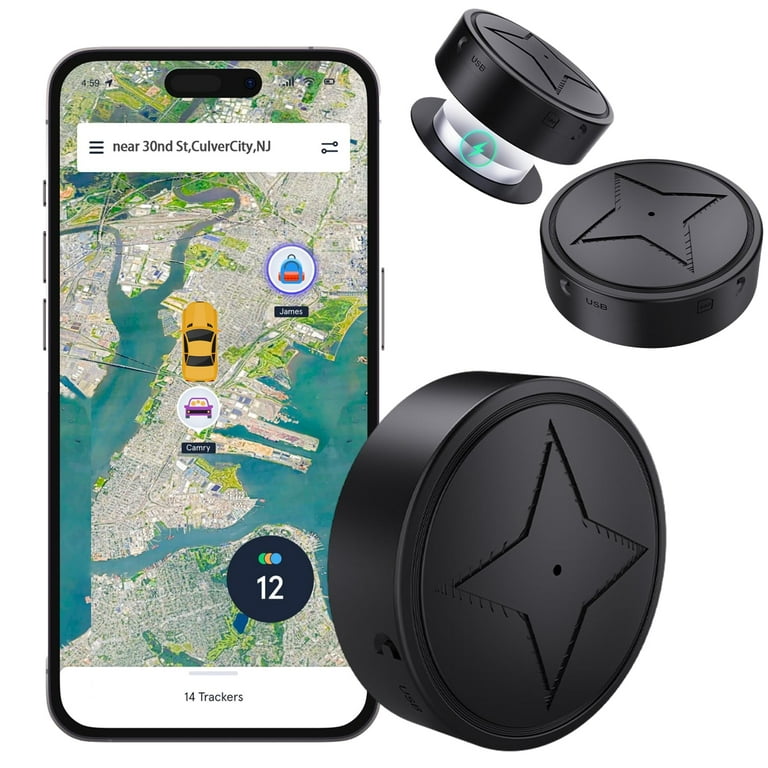Real-Time GPS Tracking Solutions for Personal and Organization Use
Real-Time GPS Tracking Solutions for Personal and Organization Use
Blog Article
Navigating the Future of GPS Tracking: Technologies, Challenges, and Opportunities Ahead
As we stand at the crossroads of technological developments and societal implications, the landscape of GPS tracking is poised for a transformative trip ahead. The evolution of GPS modern technology has actually been rapid, ushering in a new period of real-time tracking abilities that guarantee extraordinary degrees of accuracy and efficiency. Nonetheless, with excellent development comes excellent responsibility, as data privacy worries loom large and safety and security obstacles in general practitioner monitoring raise relevant questions about guarding delicate details. Yet, amidst these challenges lie covert chances waiting to be discovered, offering a look right into the untapped possibility of an industry at the brink of modification.
Development of GPS Innovation
Developed for military purposes, GPS technology has developed to end up being an ubiquitous tool in various sectors, including transportation, logistics, farming, and individual navigation. Early GPS systems were characterized by minimal insurance coverage, lower accuracy, and bulkier equipment requirements.
One trick landmark in the development of GPS innovation was the advancement of Careful Availability (SA) in the 1990s, which intentionally degraded the precision of civilian GPS signals. The discontinuation of SA in 2000 considerably improved GPS precision for civilian individuals. Succeeding improvements, such as the release of additional satellite constellations like Galileo and BeiDou, have actually further boosted GPS coverage and accuracy, making it an important device in daily life. As general practitioner modern technology remains to advance, we can expect further improvements in protection, accuracy, and efficiency, opening brand-new possibilities for innovation and applications throughout numerous sectors.
Real-Time Monitoring Advancements
Structure on the improvements in GPS technology that have transformed precision and protection, real-time monitoring has arised as an essential location of technology with profound effects throughout various sectors. Real-time monitoring improvements enable organizations and businesses to check lorries, assets, and personnel immediately, providing useful understandings for decision-making processes - gps tracking. By leveraging real-time data, firms can boost operational performance, boost client service, and ensure the safety and security and protection of their assets
Among the vital advancements in real-time tracking is the integration of man-made intelligence and artificial intelligence formulas, which enable predictive analytics and anomaly detection. These abilities permit aggressive upkeep organizing, course optimization, and threat mitigation approaches. Moreover, the evolution of real-time radar has actually led to the advancement of personalized control panels and mobile applications, encouraging individuals to gain access to vital information anytime, anywhere.
Data Privacy Worries

Information privacy worries encompass different facets, including the storage, sharing, and retention of location information. Companies need to implement robust protection steps to shield GPS tracking data from cyber dangers and data violations. Clear policies relating to information collection practices and the function of tracking are vital to build depend on with consumers and guarantee compliance with information protection guidelines.

Security Obstacles in GPS Tracking
Resolving data personal privacy concerns in GPS monitoring is intricately linked to mitigating the safety challenges that develop from possible susceptabilities in the technology. One of the key protection obstacles in GPS tracking is the risk of unauthorized accessibility to sensitive place information.
An additional safety obstacle is the possibility for spoofing or obstructing General practitioner signals. Executing durable encryption, authentication steps, and signal verification procedures are critical actions in resolving these protection obstacles in GPS monitoring.
Emerging Opportunities in the Industry
The blossoming area of GPS tracking technology presents a myriad of promising possibilities for industry growth and advancement. One key possibility Clicking Here lies in the development of GPS monitoring applications beyond traditional markets. Industries such as logistics, transport, and fleet monitoring have been very early adopters of GPS innovation. Nonetheless, arising opportunities are now emerging in areas like medical care, agriculture, and ecological surveillance. As an example, GPS tracking can reinvent person treatment by allowing remote tracking of essential signs and guaranteeing prompt clinical support. In agriculture, general practitioner technology can enhance plant administration practices and improve total return. Additionally, ecological tracking can take advantage of GPS monitoring by allowing real-time data collection for climate study and preservation initiatives.
Additionally, the boosting need for connected tools and IoT options offers a ripe chance for GPS tracking firms to broaden their offerings and create ingenious services that visit this website cater to a more connected world. By utilizing on these arising opportunities, GPS tracking firms can position themselves for continual growth and success in the vibrant landscape of the sector.
Verdict
In final thought, the future of General practitioner monitoring is marked by continual development and development in technology. As the industry moves ahead, browsing these obstacles will certainly be critical to make sure the ongoing growth and success of GPS monitoring technology.
With wonderful development comes wonderful responsibility, as information personal privacy worries impend big and protection challenges in General practitioner monitoring raising significant questions about safeguarding sensitive information.With the fast expansion of GPS tracking modern technology in different sectors, dealing with data personal privacy worries has actually ended up being a vital necessary for both consumers and organizations alike. The collection of place data via GPS tracking elevates considerable personal privacy concerns, as it allows the monitoring of people' behaviors and movements. Businesses utilizing General practitioner tracking need to focus on safeguarding this information to protect against unapproved gain access to or abuse that can endanger read this article individuals' personal privacy legal rights.
Companies have to implement durable security procedures to protect GPS monitoring data from cyber dangers and data violations.
Report this page